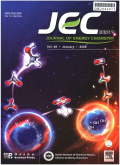- 钛学术文献服务平台 \
- 学术期刊 \
- 工业技术期刊 \
- 石油与天然气工业期刊 \
- 能源化学期刊 \
Metal-organic framework(MOF)-derived catalysts for Fischer-Tropsch synthesis:Recent progress and future perspectives
Metal-organic framework(MOF)-derived catalysts for Fischer-Tropsch synthesis:Recent progress and future perspectives
基本信息来源于合作网站,原文需代理用户跳转至来源网站获取
摘要:
Fischer-Tropsch Synthesis(FTS)is an important catalytic chemical reaction that converts a mixture of CO and H2(syngas)derived from biomass,coal or natural gas into ultra-clean fuels or value-added chemi-cals.However,most traditional catalysts used in the Fischer-Tropsch process are faced with the problems of high deactivation rate triggered by sintering,phase changes and oxidation which hamper their cat-alytic performance.Metal-organic frameworks(MOFs)-derived materials have been a promising alterna-tive in addressing the catalyst deactivation problems in FTS because of the encapsulation of their metal nanoparticles in carbon matrix and absence of large particle size,among other reasons.Therefore,this re-view emphasizes the most recent research headway in the investigation of MOFs as precursors to achieve high-performance FTS catalysts.Precisely,the design of iron and cobalt-based FTS catalysts from parent MOFs via MOF-mediated synthesis,the catalytic activity of the MOF-derived materials and the promoter effects under FTS operation were outlined and discussed.We have also evaluated the influence of MOF structures on the FTS performance and compared them with traditional/commercially available catalysts to show the importance of this approach.Finally,the challenges and opportunities to further expedite the extensive research efforts and promote their applications in material design and FT technology were mentioned.

推荐文章
微反应器技术在Fischer-Tropsch合成中的应用进展
费托合成
微反应器
微通道
催化剂
过程强化
微电解-Fenton氧化法预处理Fischer-Tropsch合成废水试验研究
Fischer-Tropsch合成
微电解
Fenton氧化法
Fischer-Tropsch合成钴基催化剂研究进展
Fischer-Tropsch合成
Co
助剂
制备
内容分析
关键词云
关键词热度
相关文献总数
(/次)
(/年)
引文网络
引文网络
二级参考文献 (0)
共引文献 (0)
参考文献 (0)
节点文献
引证文献 (0)
同被引文献 (0)
二级引证文献 (0)
2020(0)
- 参考文献(0)
- 二级参考文献(0)
- 引证文献(0)
- 二级引证文献(0)
引文网络交叉学科
相关学者/机构
期刊影响力
能源化学
主办单位:
中国科学院大连化学物理研究所
中国科学院成都有机化学研究所
出版周期:
双月刊
ISSN:
2095-4956
CN:
10-1287/O6
开本:
出版地:
大连市中山路457号
邮发代号:
创刊时间:
语种:
eng
出版文献量(篇)
2804
总下载数(次)
0
总被引数(次)
7996
期刊文献
相关文献
推荐文献
- 期刊分类
- 期刊(年)
- 期刊(期)
- 期刊推荐
一般工业技术
交通运输
军事科技
冶金工业
动力工程
化学工业
原子能技术
大学学报
建筑科学
无线电电子学与电信技术
机械与仪表工业
水利工程
环境科学与安全科学
电工技术
石油与天然气工业
矿业工程
自动化技术与计算机技术
航空航天
轻工业与手工业
金属学与金属工艺
能源化学2022
能源化学2021
能源化学2020
能源化学2019
能源化学2018
能源化学2017
能源化学2016
能源化学2015
能源化学2014
能源化学2013
能源化学2012
能源化学2011
能源化学2010
能源化学2009
能源化学2008
能源化学2007
能源化学2006
能源化学2005
能源化学2004
能源化学2003
能源化学2002
能源化学2001
能源化学2020年第9期
能源化学2020年第8期
能源化学2020年第7期
能源化学2020年第6期
能源化学2020年第5期
能源化学2020年第4期
能源化学2020年第3期
能源化学2020年第12期
能源化学2020年第11期
能源化学2020年第10期
能源化学2020年第1期

 免费查重
免费查重










